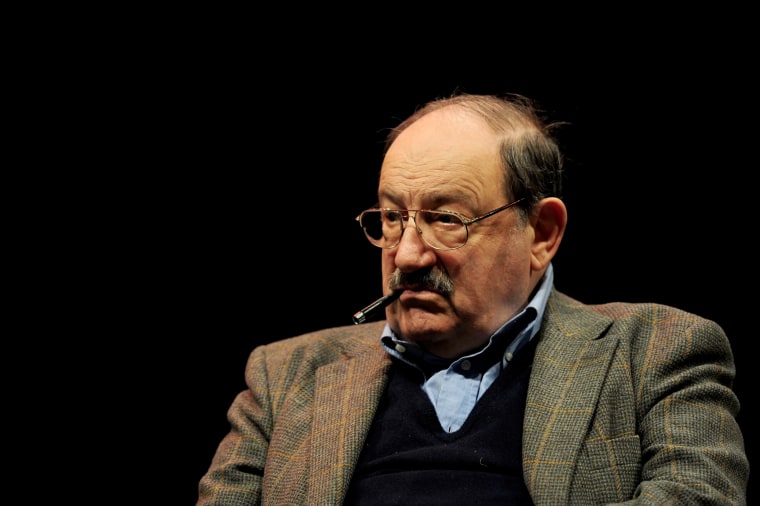Umberto Eco, the acclaimed Italian author and philosopher whose 1980 debut novel "The Name of the Rose" became a worldwide bestseller, died at his Milan home Friday night, his publisher confirmed. He was 84.
American publisher Houghton Mifflin Harcourt did not specify a cause of death, but a family member told The Associated Press that he had been suffering from cancer.
Italy’s culture minister, Dario Franceschini, tweeted that Eco was "a master who brought Italian culture to the whole world."
Italian Prime Minister Matteo Renzi remembered the literary giant, a professor emeritus at the University of Bologna and scholar, as an "outstanding example of a European intellectual."

Eco was born in the northern Italian region of Piedmont, and at a young age excelled in academics.
He later joined a Catholic youth group, but became disenchanted with the conservatism of Pope Pius XII and left the church during his university studies.
He received a degree in philosophy from the University of Turin in 1954, beginning his fascination with the Middle Ages and the aesthetics of text. And he had always loved storytelling, and as a teenager wrote comic books and fantasy novels.
Eco started a journalism career in the 1950s, working for the Italian state-owned television RAI. From the 1960s onwards, he wrote columns for several Italian dailies. He also wrote children's books, including "The Bomb and the General."
But it was "The Name of the Rose" that transformed him from an academic to international celebrity, especially after the medieval thriller set in a monastery was made into a film starring Sean Connery and Christian Slater in 1986.
"The Name of the Rose" sold millions of copies, a feat for a narrative filled with partially translated Latin quotes and puzzling musings on the nature of symbols.
His second novel, the 1988 "Foucault's Pendulum," a byzantine tale of plotting publishers and secret sects also styled as a thriller, was successful, too — though it was so complicated that an annotated guide accompanied it to help the reader follow the plot.
In a 2015 interview with Publishers Weekly, Eco mused over his remarkable career and seemingly simplistic life in his book-filled Milan apartment. He said he hadn't smoked in 11 years, but "(I) still like an occasional unlit cigarino."
When it came to writing at an older age, Eco told the trade magazine that there were no longer any rules he set for himself.
"I write when I can and when I like. I work well in the country at night, with the distant howling of the dogs across the valley," he said.
That year, Eco's final novel, "Numero Zero" — a satire on the Italian tabloid media — was translated into English. When asked whether he was working on anything new, he was hopeful people wouldn't hear the last from him.
"My books are usually written six years from one to the other. It was eight years for 'Foucault’s Pendulum,'" he said. "So we will have to talk again when I am 90."
He leaves behind a wife, Renate Ramge Eco, and a son and daughter.
